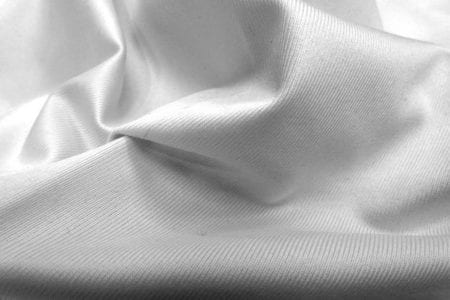By Allison Pocewicz, Marketing Coordinator, Fabric Images, Inc.

The quest for environmentally friendly solutions within the tradeshow and exhibition industry is in full swing. While we have previously reviewed the high-level benefits that tension fabric and frame offer, the fabric story goes much deeper. For polyester fabrics, it is a fiber called Repreve that is taking the environmental conversation by storm, yet to many this term is unknown.
Repreve, made by Unifi, is a fiber created from various recycled materials, including post-consumer plastics, post-industrial waste and even fabrics. It takes less energy and conserves petroleum-based resources, as compared to virgin synthetic fibers. Through Unifi’s proprietary process, Repreve fibers are made with integrity and are certified through Unifi’s U Trust™ verification system with Fiberprint™ technology.
What happens next is that the fibers are woven into fabric. These fabrics are used within fashion, home furnishings and automotive upholstery. Equally as remarkable, though, is that these same Repreve fibers are woven into polyester fabrics that are available within the tradeshow and exhibition industry for integration into tension fabric solutions.
These polyester fabrics are high-quality and accept the dye sublimation print process beautifully. The past several years have brought great advances in polyester fabric offerings with Repreve® to our industry.
- A variety of polyester fabric personalities are available, ranging from 40% to 100% recycled content.
- Using 100% post-consumer waste has led to an improved white point compared to blends that were common place several years ago.
- The price difference of 100% post-consumer polyester fabric compared to virgin-fiber polyester fabric is roughly 5% (compared to 10-12%, 5 years ago).
Five percent seems like a small price to pay to conserve our natural resources. For those waiting for environmentally friendly polyester fabric to be of equal or lesser value than the virgin-fiber alternative, stop waiting. There are dynamics beyond the control of mills which affect this. For example, with the cost of crude oil down, it costs less to create virgin polyester. But, is this worth it?
Consider this… Compared to virgin fibers, Repreve® uses 45% less energy, 20% less water and has a 30% reduction in greenhouse gas emissions. Fabrics made with the Repreve® fiber are not only minimizing environmental impact upfront, but if recycled properly, they are minimizing it on the back end as well.
Recycling is where each of us comes in. According to the Environmental Protection Agency (EPA), roughly 85% of textile waste is not recycled. While this accounts for all textile waste, not only polyester, our industry can certainly do more in an effort to decrease this number. Working with a tension fabric solutions provider who offers a recycling program for fabric is a first step. Collecting and sending back your out of use fabric to that partner is the second step.
While environmentally friendly fabrics are available within our industry, they still have to be requested in many cases. Sourcing fabrics with the Repreve® fiber is not difficult. Simply ask your tension fabric solutions provider. It’s time to stop waiting and start integrating these fabrics into environments. It is the first of many steps that we, as an industry, can take to conserve our natural resources and help our environment.






























